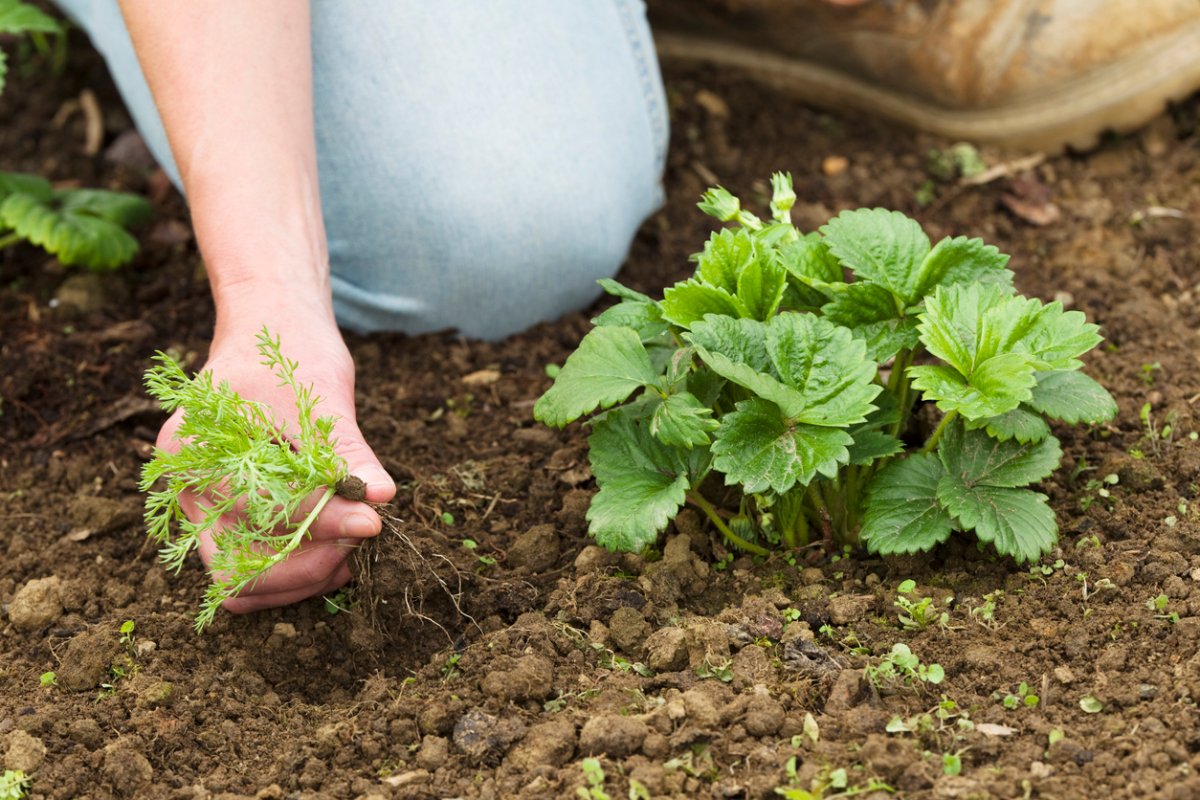

We may earn revenue from the products available on this page and participate in affiliate programs. Learn More ›
Are weeds getting in the way and preventing flowers and vegetables in your garden from thriving? Besides being a nuisance and eyesore, certain weeds can affect the health of a garden by cutting off essential nutrients, water, or sunlight to other plants.
While there are many ways to prevent weeds from spreading and taking over a garden, some methods are toxic and can end up harming the environment, including local wildlife and the soil, not to mention people and pets spending time in the yard.
Natural homemade weed killers are great alternatives to traditional chemical-based weed killers. DIY weed killers are safer, reduce the risk of accidental exposure to harmful chemicals, promote sustainable gardening practices like minimizing chemical runoff in water sources, and are often cost-effective. Fortunately, there are many homemade weed killer options to try. Keep reading to explore the pros and cons of some of the most common tactics to get rid of weeds naturally.
RELATED: We Researched More than 20 Options to Find the Best Organic Weed Killers
1. Pro: Corn Gluten Meal
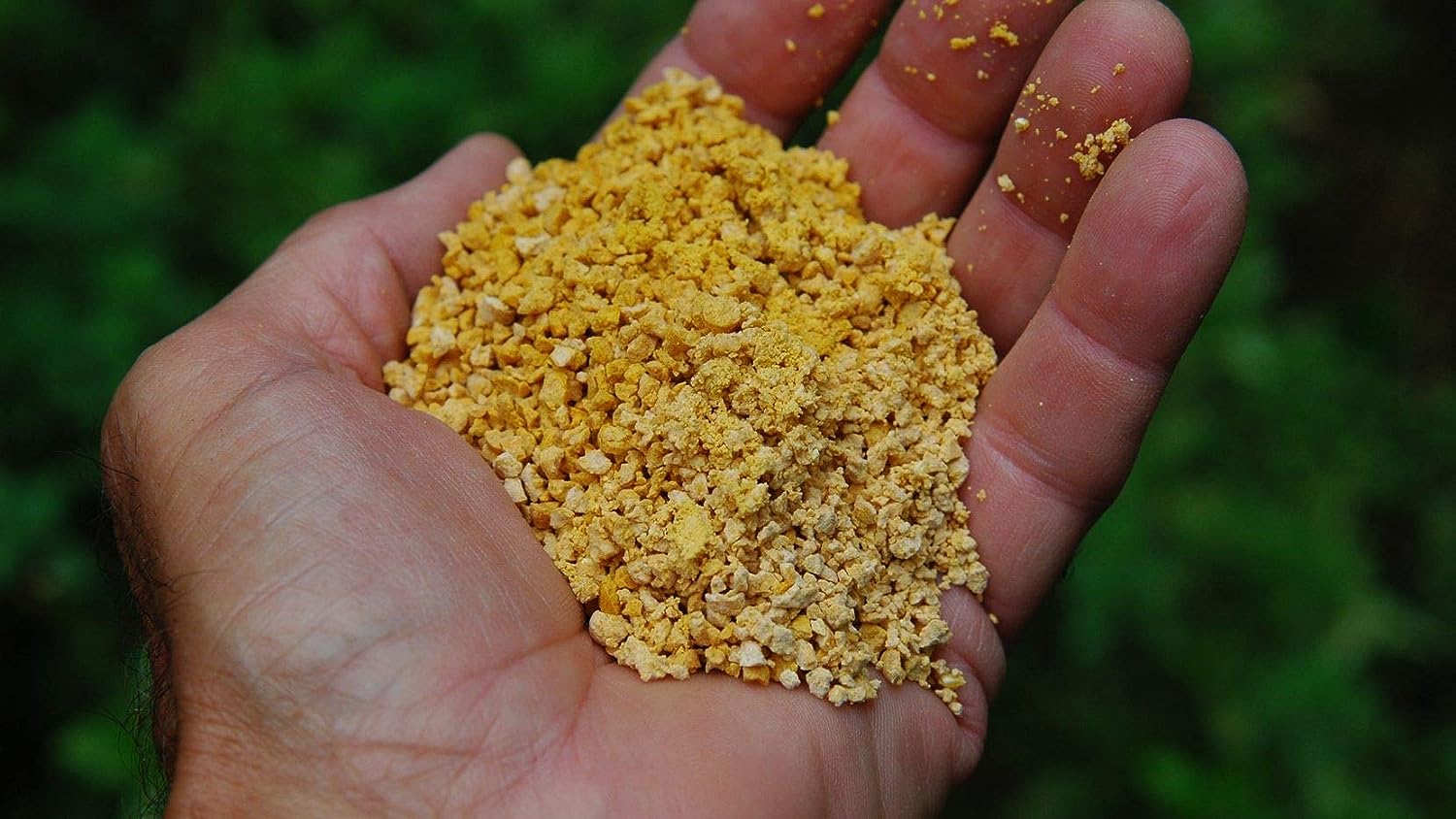
Corn gluten meal is a natural byproduct of the wet milling process of corn. It contains 60-percent protein and typically is used as a supplement in feeds for livestock, poultry, and pets. It also happens to reduce seed germination. Use corn gluten meal as a natural weed killer by spreading it over weed seeds—not mature weeds. This nontoxic weed killer can help prevent germination, preventing weeds from sprouting.
2. Con: Corn Gluten Meal
The challenge with corn gluten meal is that it can prevent the seeds you want to grow from germinating as well if it ends up being spread in the wrong places. Do not sprinkle it near recently sowed flower or vegetable seeds and do not use it in soil if you hope to grow plants from seed in that spot. Also, corn meal may need to be applied a few times before it works. Finally, lots of rainfall or irrigation after applying the homemade weed killer can reduce its effectiveness.
RELATED: 5 Things to Do With Weeds After You Pull Them
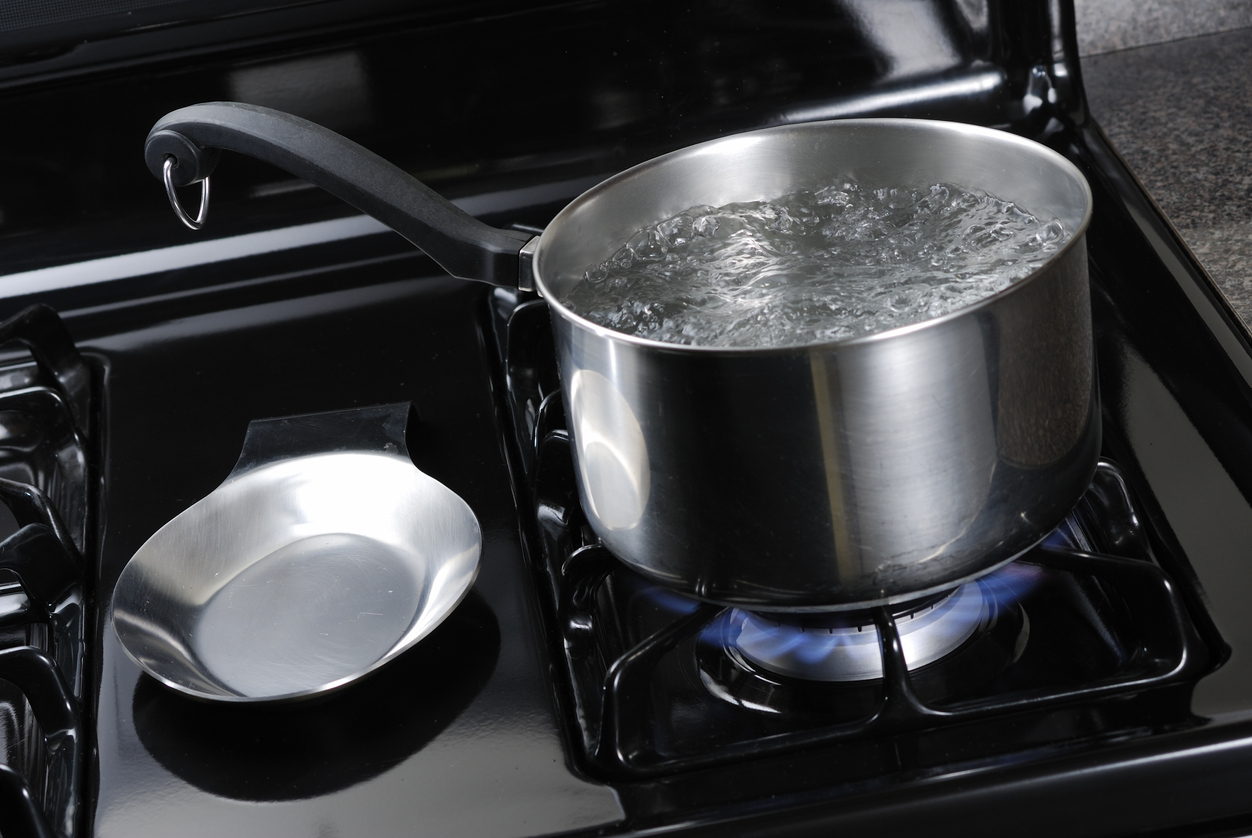
3. Pro: Boiling Water
This is one of the easiest and least expensive natural weed killers around. It does not require any preparation or mixing. Plus, gardeners can use boiling water on weeds any time of day and during any type of weather—even just before rain. Just boil some water and pour it on the leaves of the weeds.
4. Con: Boiling Water
While boiling hot water can destroy leaves on weeds, some experts criticize this tactic since the roots are protected from the hot water. This means it is only a temporary fix and the weeds won’t actually die. Safety issues are another concern with using boiling water. Not only can other plants get burned in the process, but so can you.
RELATED: 19 “Zero Dollar” Garden Hacks

5. Pro: Newspaper
Want to do something positive for the environment while controlling weeds in the garden? Layering newspaper is an effective way to keep weeds at bay. The newspaper smothers the weeds and prevents sunlight from reaching them. It also attracts earthworms that help aerate and improve the soil for the plants you want to thrive. Finally, another benefit of laying newspaper on the ground is that it improves fertility of the soil as it decomposes over time.
6. Con: Newspaper
The biggest problem with using newspaper as a natural weed killer is that it is unattractive and can dramatically reduce a home’s curb appeal if placed where seen. Additionally, some gardeners can take this option to the extreme and use too much newspaper, which can prevent water flow and airflow into the soil. Finally, avoid glossy paper since it does not break down like regular newspaper does.
RELATED: 15 Things to Know Before Laying Landscape Fabric in Your Yard
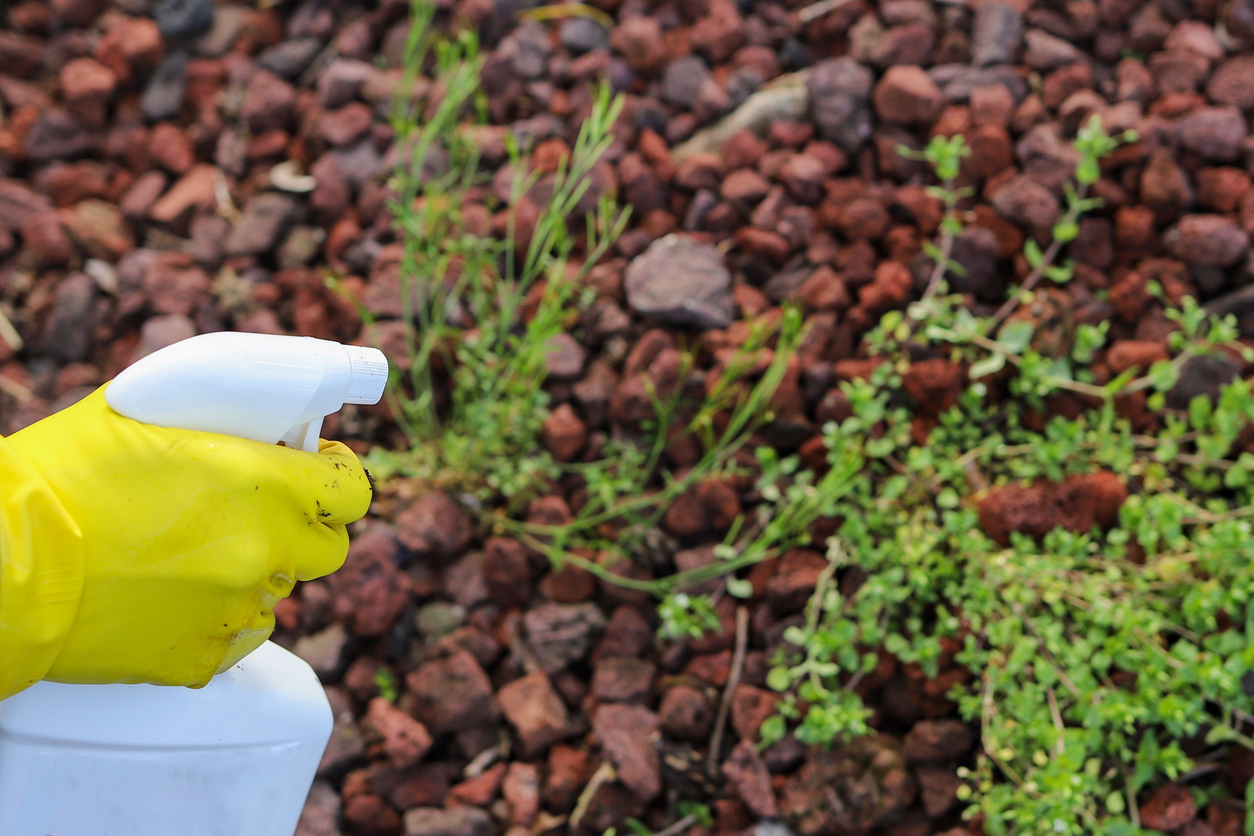
7. Pro: DIY Herbicidal Soap
This mixture of white vinegar, salt (sodium chloride), and liquid dish soap is a very popular natural weed killer and often is noted for its effectiveness. Each ingredient has a special property to help get rid of undesirable weeds. The vinegar and salt contain acetic acid, a desiccant that dries out weeds and can ultimately kill them. The dish soap reduces the surface tension in the mixture so the liquid can enter the pores of the leaves.
8. Con: DIY Herbicidal Soap
The biggest complaint about using an herbicidal soap solution is that it can end up killing other plants with which it comes in contact. It is also important to avoid spraying this DIY soap on concrete sidewalks, driveways, and patios because the salt can discolor or erode concrete. Another concern is that gardeners typically need to apply the herbicidal soap multiple times, especially for stubborn weeds and in areas with heavy weed growth. Finally, vinegar with acetic acid concentrations higher than 11 percent can cause dangerous skin and eye burns.
RELATED: When to Apply Pre-Emergent Herbicide to Prevent Weeds in Your Lawn
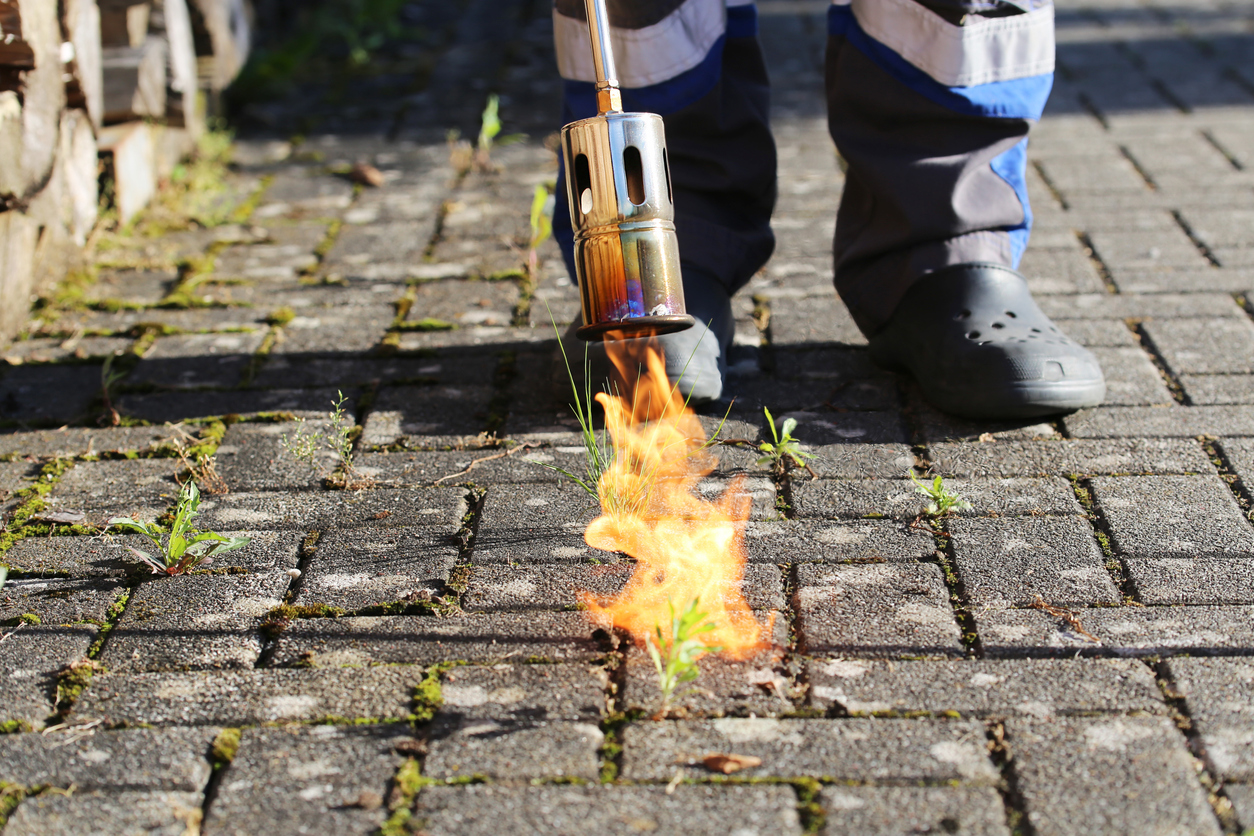
9. Pro: Weed Torch
A weed torch is used to tackle both mature weeds and weed seeds. The torch kills the weeds by heating the water inside the cells of the plants with up to 2,000 degrees Fahrenheit of extreme heat. The cells explode when the water turns to steam, destroying the weeds. When used correctly, the weed torch should not burn the plants. This tool is especially effective for weeds growing in sidewalk cracks, between pavers, and on gravel.
RELATED: Weeding Without Chemicals: Red Dragon Mini Weed Torch Tested & Reviewed
10. Con: Weed Torch
Weed torches come with a few drawbacks. Be careful using a flame on windy days or in areas experiencing drought conditions. Next, avoid using a torch on poison ivy and other poisonous plants because the heat can release dangerous plant oils into the air and end up affecting people’s eyes or lungs. Be careful not to damage the surrounding plants in the garden or melt installed weed fabrics. Finally, there are important safety precautions to take when operating a weed torch. Be especially careful using it around children and pets.
